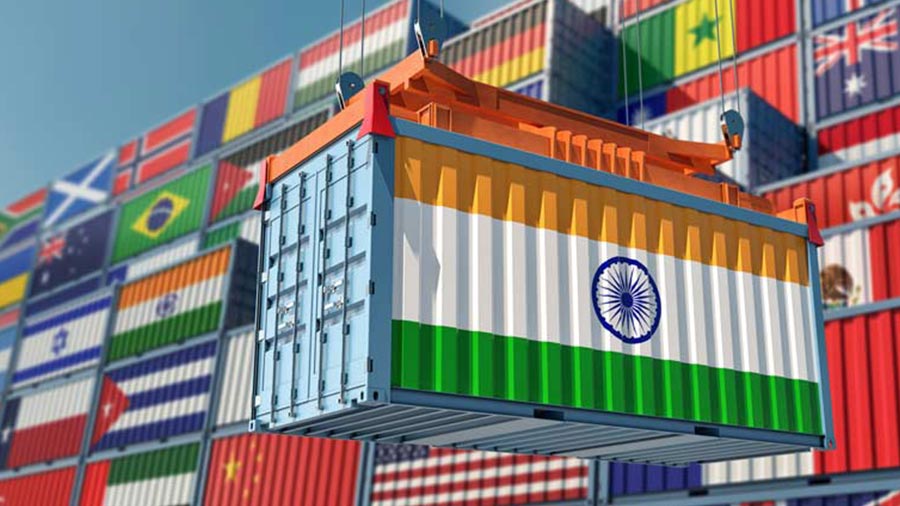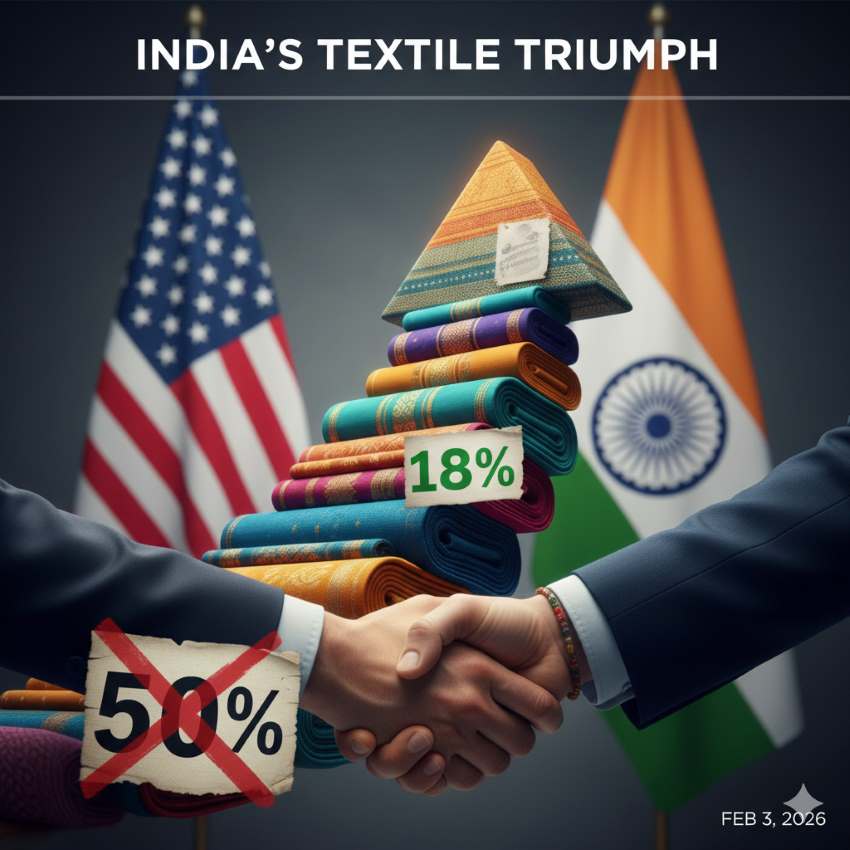
In the quiet warehouses of northern France, bales of discarded jeans, shirts, and dresses pile higher each week. For French recyclers like Le Relais, the financial strain is becoming unbearable: they say they need €304 per tonne to break-even but receive just €156. That €148 deficit has pushed some operations to the brink of insolvency.
Across the globe, in India’s historic textile hubs of Panipat, Tiruppur, Ludhiana the sound of spinning machines and sorting tables has never stopped. Here, labor costs are a fraction of Europe’s, the recycling know-how is decades old, and the domestic market for recycled fibers is growing fast. Could this be where Europe sends its unwanted textiles for a second life?
The cost advantage
For labor-intensive tasks like manual sorting, India’s lower wages present an undeniable economic lure. In Europe, sorting can cost €100 per tonne in labor alone; in India, the same job might cost just €10-€20 per tonne. Here’s an illustrative cost comparison based on Le Relais’s figures and hypothetical outsourcing scenarios.
Table: Illustrative per tonne cost comparison based on Le Relais's stated needs
|
Cost component (hypothetical breakdown) |
Europe (current) |
India (outsourced scenario) |
Potential savings (per tonne) |
|
Collection & Initial Sorting (Europe) |
€50 |
€50 |
€0 |
|
Manual Sorting (Labor-Intensive) |
€100 |
€15 (due to lower wages) |
€85 |
|
Mechanical Processing (Labor/Energy) |
€50 |
€25 (lower labor/some energy) |
€25 |
|
Logistics (Europe to India) |
N/A |
€30-€60 (shipping waste) |
-€30 to -€60 (added cost) |
|
Logistics (India to Europe - Recycled) |
N/A |
€20-€40 (shipping recycled) |
-€20 to -€40 (added cost) |
|
Overheads/Admin (Proportional) |
€54 |
€20 (lower administrative) |
€34 |
|
Total Estimated Cost per Tonne |
€304 (Le Relais's needed) |
€140 - €170 |
€134 - €164 (potential saving) |
|
Current Revenue (Le Relais) |
€156 |
€156 |
|
|
Deficit (Le Relais) |
€148 |
Profit of €(approx) 0-16 |
Even with extra shipping costs, the savings are potentially large enough to turn deficits into slim profits.
Why India fits the bill
There several reasons that works in favour of India. First is it’s a textile powerhouse. In fact India’s textile industry is one of the largest in the world, with integrated supply chains for cotton, polyester, and blends. Recycled fibers could easily be blended into yarn production without reinventing the wheel.
Also, there is a built-in market for secondhand as India has long embraced secondhand and repurposed clothing, meaning some collected textiles could be sold directly for reuse, increasing value capture. What works for India als is the existence of strong mechanical recycling base. From cotton shoddy yarn in Panipat to wool recycling in Ludhiana, India’s mechanical recycling facilities are extensive, keeping capital costs lower than Europe’s when scaling up operations.
Panipat’s inherent issues
However, despite the attractive numbers, this is no silver bullet. Shipping bulky textile waste halfway around the world adds a major carbon cost. A 20 ft container (8-10 tonnes) from Europe to India could cost €150 to €300 per tonne in freight alone, eroding savings and undermining the “local circularity” principle central to Europe’s Extended Producer Responsibility (EPR) schemes.
Then there are the regulatory hurdles as India allows imports of “mutilated rags” for recycling but restricts whole used garments unless processed in special zones. European waste exporters would need to meet Indian import rules precisely.
Quality control is another bug bear. Fast fashion’s low-quality fabrics don’t magically become better in India many still end up downcycled or landfilled. Ensuring that outsourced sorting meets European manufacturers’ recycling requirements would require strict protocols and auditing.
Moreover, lower wages can mean exploitative conditions and without rigorous oversight, the move risks becoming another case of developed nations offloading both environmental and social costs onto developing countries.
A possible hybrid approach
Experts suggest a two-track system.
• Keep high-tech automated sorting and advanced chemical recycling in Europe to preserve innovation and ensure local circularity.
• Outsource certain low-value, labor-intensive sorting and mechanical recycling to India, but under binding environmental and labor standards.
This approach could relieve short-term financial pressures while supporting India’s growing circular economy sector.
Thus outsourcing to India could help Europe close its recycling cost gap but only if done with airtight safeguards, transparent quality controls, and a shared commitment to ethical labor and environmental responsibility. If Europe sees India merely as a cheap processing site, the move risks becoming a repeat of the textile waste dumping scandals in Africa. If, instead, the relationship is built on partnership and shared value creation, it could form the backbone of a truly global circular textile economy. The choice is clear: treat outsourcing as a lifeline to prop up a failing system, or as an opportunity to build a more equitable, connected recycling network that spans Paris to Panipat without leaving a trail of waste behind.












